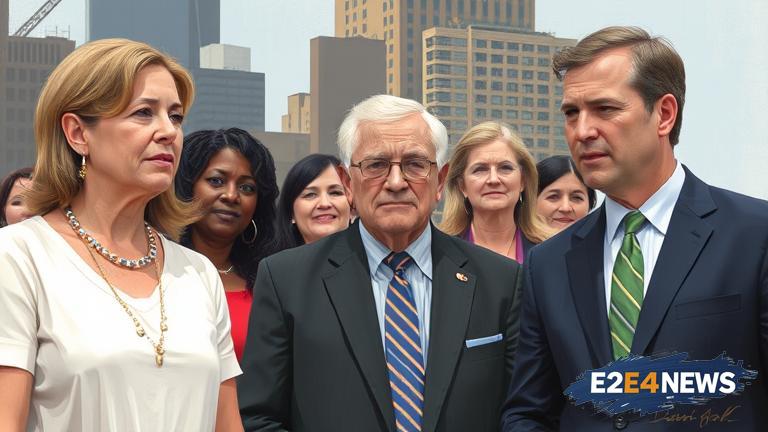A recent rezoning proposal in Nashville, Tennessee, has ignited a heated discussion among residents and councilmembers. The proposal, which aims to increase density and affordability in the city, has been met with both support and opposition. Proponents of the plan argue that it will help alleviate the city’s housing shortage, particularly for low-income and minority communities. They claim that by allowing for more density and mixed-use development, the proposal will increase the supply of affordable housing and reduce segregation. On the other hand, opponents of the plan argue that it will lead to the displacement of low-income families and small businesses, as well as increased traffic and congestion. Some residents are concerned that the proposal will benefit wealthy developers at the expense of long-time community members. Councilmembers are also divided on the issue, with some expressing support for the plan and others voicing concerns about its potential impact. The proposal has been the subject of numerous community meetings and public forums, where residents have had the opportunity to express their opinions and concerns. Despite the controversy surrounding the proposal, many agree that something needs to be done to address the city’s housing crisis. Nashville is experiencing rapid growth, with thousands of new residents moving to the city each year. This growth has put a strain on the city’s housing market, leading to increased prices and decreased affordability. The rezoning proposal is seen by some as a necessary step to address this crisis, while others view it as a threat to the city’s character and community. The city’s planning department has argued that the proposal is designed to promote more equitable and sustainable development, while also increasing the supply of affordable housing. However, some residents are skeptical of the city’s claims, arguing that the proposal will ultimately benefit wealthy developers and corporations. The debate over the rezoning proposal has highlighted the complex and often contentious nature of urban planning and development. As the city continues to grow and evolve, it is likely that similar debates will arise, pitting the needs of different stakeholders against each other. The outcome of the rezoning proposal is still uncertain, with councilmembers set to vote on the plan in the coming weeks. Regardless of the outcome, it is clear that the proposal has sparked a necessary conversation about the future of Nashville and the needs of its residents. The city’s residents and councilmembers will need to work together to find a solution that balances the needs of different stakeholders and promotes more equitable and sustainable development. The proposal has also raised questions about the role of government in regulating development and ensuring that growth is equitable and sustainable. As the city moves forward, it will be important to consider the potential impacts of the proposal on different communities and to work towards a solution that benefits all residents. The rezoning proposal is just one example of the many challenges facing Nashville as it continues to grow and evolve. The city will need to balance the needs of different stakeholders, including residents, businesses, and developers, in order to create a more sustainable and equitable future. The proposal has highlighted the need for more community engagement and participation in the planning process, as well as the importance of considering the potential impacts of development on different communities. Ultimately, the outcome of the rezoning proposal will depend on the ability of councilmembers to balance the competing interests of different stakeholders and to create a plan that promotes more equitable and sustainable development.
